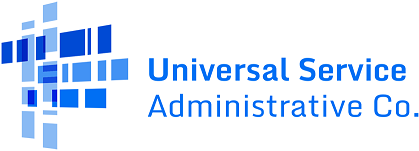Payment Quality Assurance (PQA)
The Payment Quality Assurance (PQA) program is designed to obtain estimates of the improper payment rate as required by the Payment Integrity Information Act of 2019 (PIIA). Any universal service fund payment is subject to improper payment testing. Under this initiative, USAC selects a statistically valid sample of payments to determine if these payments were made in accordance with FCC rules.
If any non-compliance is discovered during an assessment, the analyst will note it as an improper payment and the respective USF program may recover funds commensurate with the FCC rule violation. If any potential waste, fraud, or abuse is discovered during an assessment, the analyst will refer the matter to the FCC Office of Inspector General and the FCC Enforcement Bureau for additional action.
PQA participants should reach out to USAC’s PQA Team if they have any questions or concerns about the assessment process or the identity of the individual contacting them about an assessment.
What You Can Expect During an Assessment
The assessment process consists of three main phases (planning, testing, and reporting). See image below for examples of assessment activities in each phase.

Understanding the PQA Assessment Process
Planning
If an entity has been selected for an assessment, an announcement letter will be sent to the entity’s designated point of contact (as identified on its FCC Form 498) detailing the purpose and scope of the assessment, describing the initial documentation request, stating the date upon which the documentation is due, and providing instructions on how to submit the documents.
Testing
During the audit’s testing phase, the following areas will be tested.
- High Cost program:
- Eligibility requirements
- High Cost per-line cap and Frozen High Cost Support testing
- Disbursement recalculation
- Frozen rate recalculation
- Line count testing
- Data submissions
- Revenue testing
- Documentation to support a sample of assets, expenses, and depreciation
- High Cost Program PQA Document List
- Lifeline program:
- Lifeline Claim System (LCS) submissions and disbursements
- Duplicate subscribers
- Subscriber eligibility to receive Lifeline program support
- Subscriber certification and recertification
- One-per-household rule
- Usage requirements
- Lifeline Program PQA Document List
- E-Rate program:
- Applicant eligibility
- Competitive bidding process
- Contract or legally binding agreement
- National School Lunch Program (NSLP) discount calculations
- Invoicing submission and Reimbursements
- Children’s Internet Protection Act (CIPA) compliance
- Delivery and/or installation of physical inventory
- Customer bills to support E-Rate funded equipment and/or services to applicants
- Non-traditional education
- Lowest Corresponding Price
- Authorized representative for consortia
- Payment for non-discounted portion
- E-Rate Program PQA Document List
- Rural Health Care (RHC) program:
- Health care provider (HCP) eligibility
- Competitive bidding process
- Contract or legally binding agreement
- Network Cost Worksheet and cost allocation methodology
- Payment of non-discounted portion/reimbursement
- Amounts invoiced to the program
- Delivery or installation of eligible products and services
- Documentation supporting urban and rural rate calculations
- Rural Health Care (RHC) Program PQA Document List
As potential improper payments are discovered, the entity will be notified as soon as possible to be given an opportunity to provide adequate and sufficient documentation to remediate the issue.
Reporting
The results of the assessment will be submitted to the FCC for review. The entity will receive a closure letter with the results of the assessment.
A list of the most common findings for each USF program can be found at the following links: High Cost, Lifeline, E-Rate, and RHC.
Post-Assessment Activity
The monetary effect associated with the FCC rule violation will be classified as an improper payment. If USAC management agrees with the auditor’s conclusion, they will send a notification or recovery letter to the entity. If the entity disagrees with USAC management’s decision to recover funds and is aggrieved by such action, the entity may file an appeal to USAC pursuant to 47 § 54.719.
Helpful Tips
The following best practices will help minimize findings:
- Research. Stay abreast of FCC rules and program requirements.
- Perform quality checks. Review reported data for accuracy prior to submitting it to USAC. Check specific data, not just summaries.
- Document, document, document. Retain appropriate and adequate documentation to support filings, eligibility requirements, data, etc. FCC rules require program participants to keep documentation for a specific number of years (e.g., five or ten years from disbursement).
- Provide sufficient detail on all bills, invoices, and communications with vendors/applicants.
- Get organized. Keep documentation in an organized manner and easily accessible for times of transition or turnover.
PQA compliance analysts are available by phone or email to assist participants seeking to understand and fulfill program requirements. USAC assigns a unique case number to each PQA review, and PQA participants should reference this number when reaching out to USAC’s PQA Team with questions.
